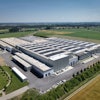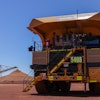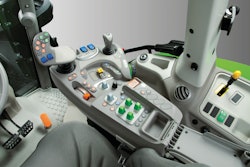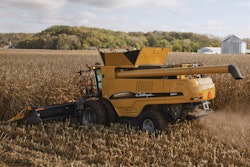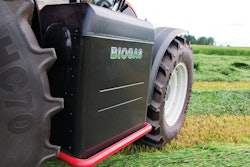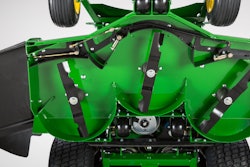One of the true environmental success stories of the past two decades has been the emergence of clean diesel technology and fuel. After billions of dollars for research and development, truck, car, bus and off-road manufacturers are now producing clean diesel engines and equipment that have near-zero emissions, says Allen Schaeffer, the Executive Director of the Diesel Technology Forum.
"The United States has experienced a truly remarkable transition with the development of new clean diesel technology," Schaeffer says. "The new diesel truck, car and off-road engines have reduced particulate matter and nitrogen oxide emissions by more than 90% in the past two decades.
"And we're proud to note that this all has been accomplished by an industry that has worked cooperatively with policymakers and environmental stakeholders from California to Washington D.C. and around the world to dramatically reduce emissions while also increasing clean diesel's efficiency and productivity," Schaeffer says.
"Earth Day is an opportunity to reflect on our commitments to protect and enhance our environment and natural resources, and use energy resources efficiently. There is no better example than diesel as a technology and an industry that has undergone a complete transformation in so little time that is enhancing our environment and quality of life around the globe.
"The emergence of new clean diesel technology is a true environmental success story."
So, What Is "Clean" Diesel?
Schaeffer says some of the major highlights of the new clean diesel technology include:
- A 98% Reduction in Emissions from New Commercial Diesel Trucks: Emissions of nitrogen oxides and particulate matter have been reduced by 98% in commercial diesel trucks making them near-zero emissions. At the same time, the new clean diesel technology has made these new engines 5 to 10% more fuel efficient. More than one-third of all heavy-duty Class 8 commercial trucks on the road today are 2007 and later model year clean diesel powered.
- A 90% Reduction in Emissions from New Farm and Construction Equipment: Farm tractors, harvesters, construction machines and industrial equipment have fully implementing the new "Tier 4 Final" clean diesel technology, which has cut emissions of particulate matter by more than 90% and half of all nitrogen oxide emissions.
- A 97% Reduction in Sulfur in New Diesel Fuel: The new ultra-low sulfur diesel (ULSD) for all diesel vehicles has reduced the sulfur content 97% since its introduction for highway uses in 2006. The transition to the ULSD for all diesel fuel applications for highway vehicles was completed December 1, 2010, and the majority of fuel supplied for non-road, marine and locomotive was substantially completed on January 1, 2012.
- Diesel Cars and Pickup Trucks Are 30% More Fuel Efficient: Diesel cars get about 30% better fuel economy than a comparable gasoline car. Today diesel cars make up only about 3% of all vehicles on the road. If 30% of the cars in the U.S. ran on diesel instead of gasoline, they would reduce the demand for oil by 1.4 million barrels a day - about the amount the U.S. imports from Saudi Arabia.
- New Clean Diesel Buses Are Comparable to CNG Buses: An analysis by the Clean Air Task Force comparing emissions from 2012 clean diesel buses to 2012 CNG to 2012 buses found that new clean diesel technology is very competitive with CNG. According to the analysis, "Both new diesel and new CNG buses have significantly lower emissions of NOx, PM and HC than the older diesel buses that they replace. According to EPA's MOVES emissions model a 2012 model year diesel bus emits 94% less NOx per mile, 98% less PM, and 89% less HC than a model year 2000 (12-year old) diesel bus. A model year 2012 CNG bus emits 80% less NOx, 99% less PM, and 100% less HC than a model year 2000 diesel bus."
Modernizing & Cleaning Up Older Diesel Engines
"Environmental and clean air progress is not limited to just new technology," Schaeffer says. "We are continuing our bipartisan effort with our coalition of environmental, health, industry and labor organizations to continue federal funding for the highly successful Diesel Emissions Reduction Act (DERA) program.
"While the Administration's budget provides no funding for the modernizing and upgrading of existing diesel engines, we are working with members of both political parties in the U.S. House and U.S. Senate to restore funds for this important program. Everyone knows DERA works. In fact, EPA has found that DERA has delivered $13 in benefits for every $1 invested in reducing emissions from the thousands of older diesel engines that have been modernized over the years."

